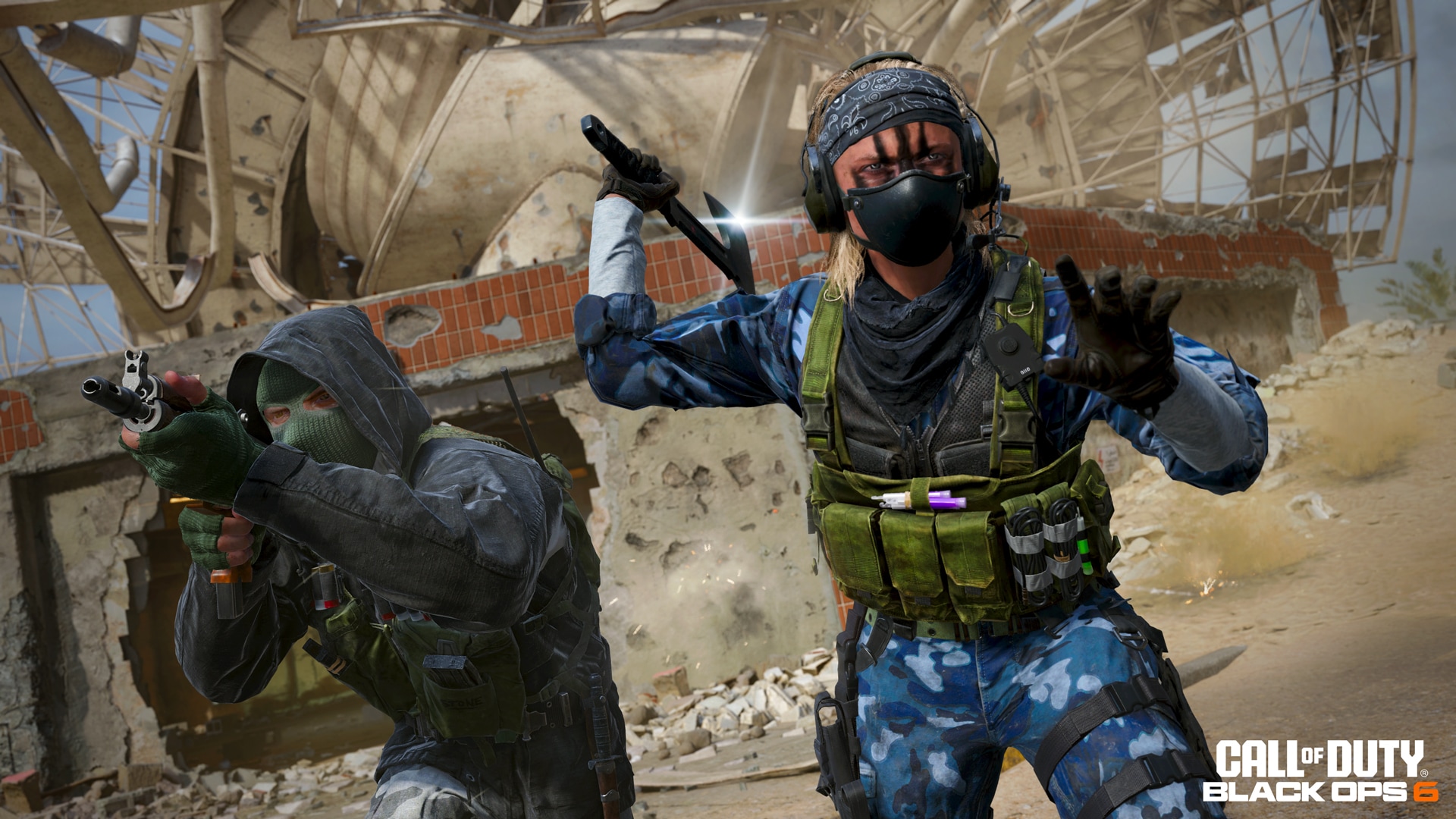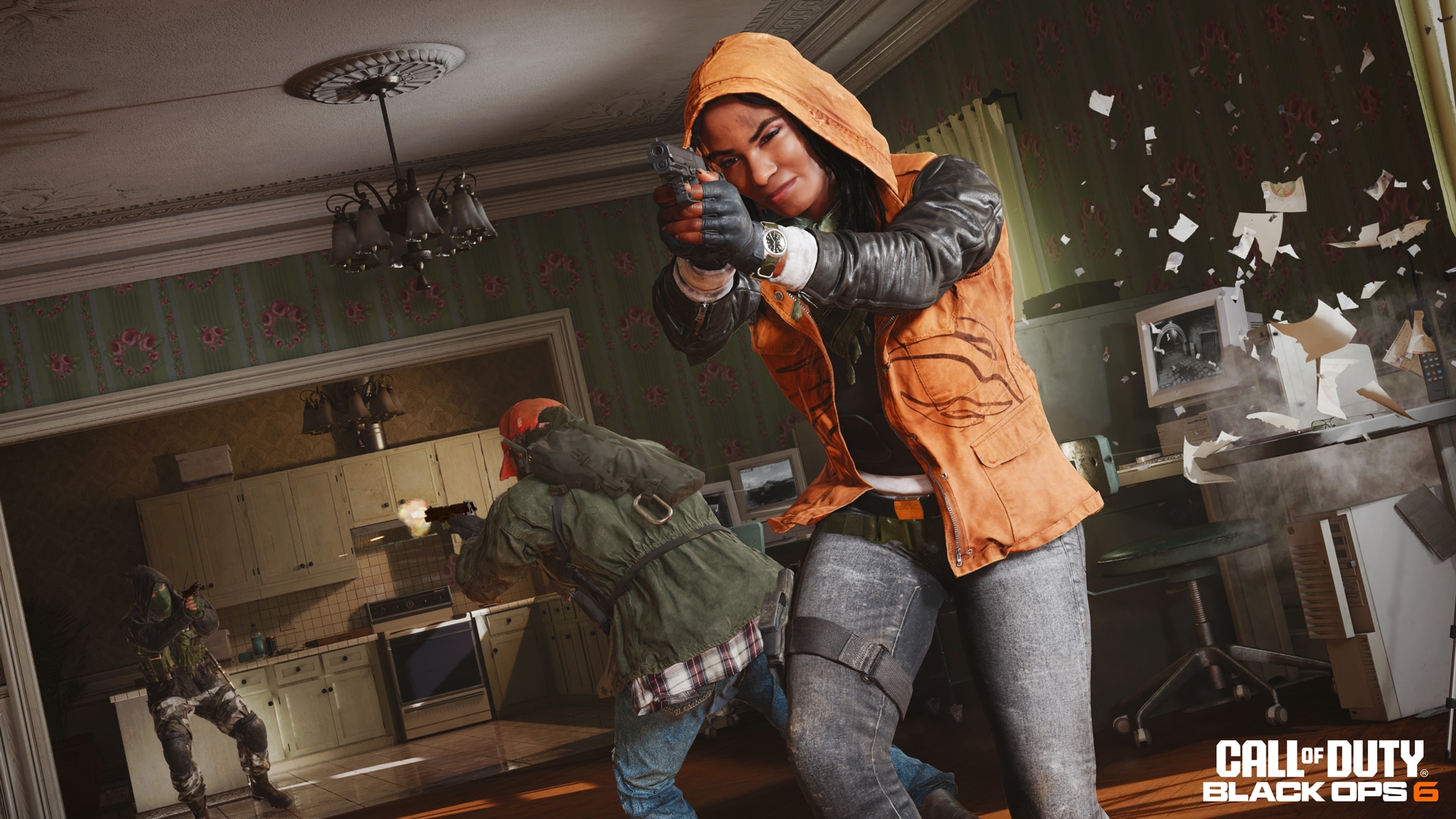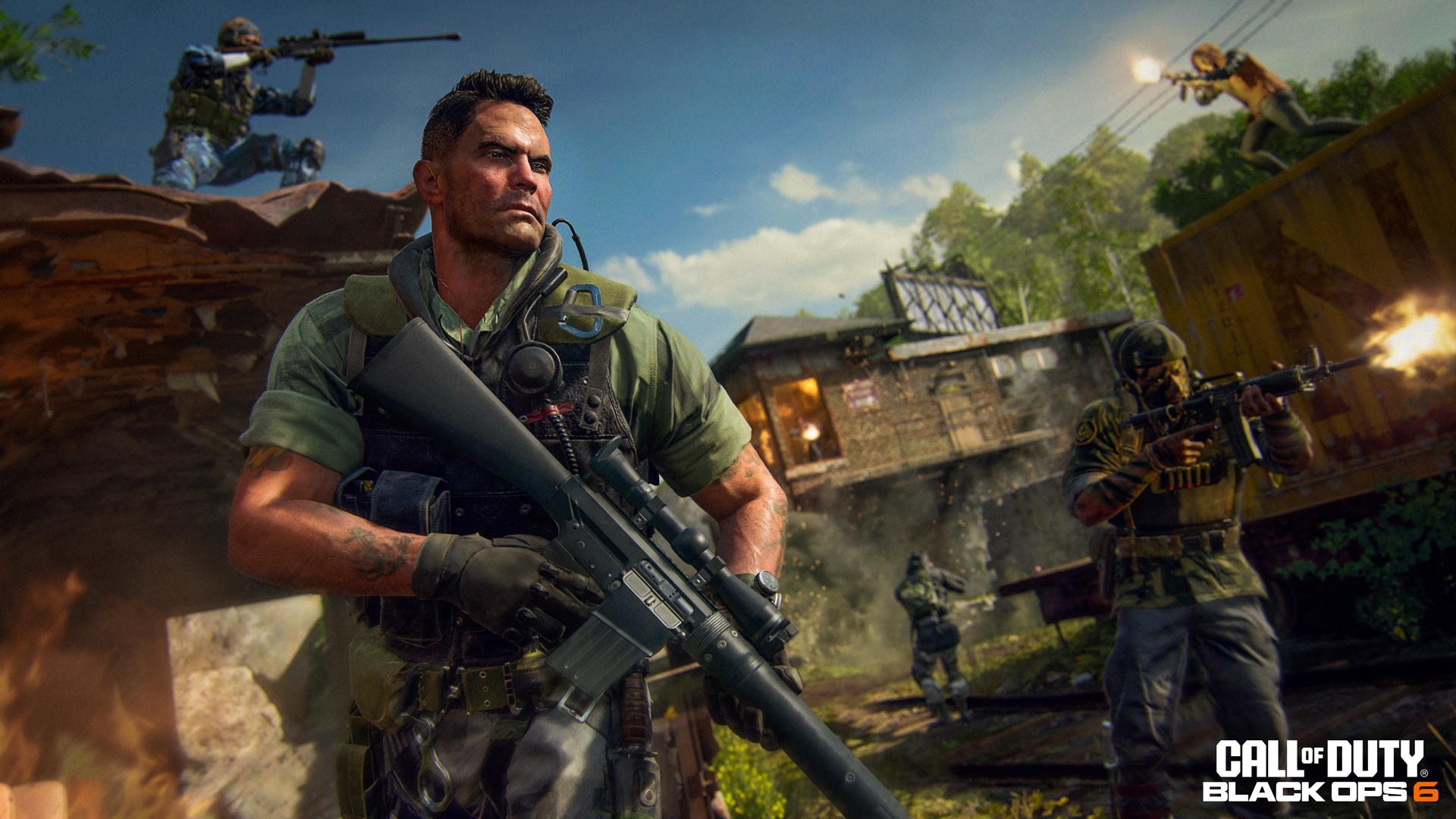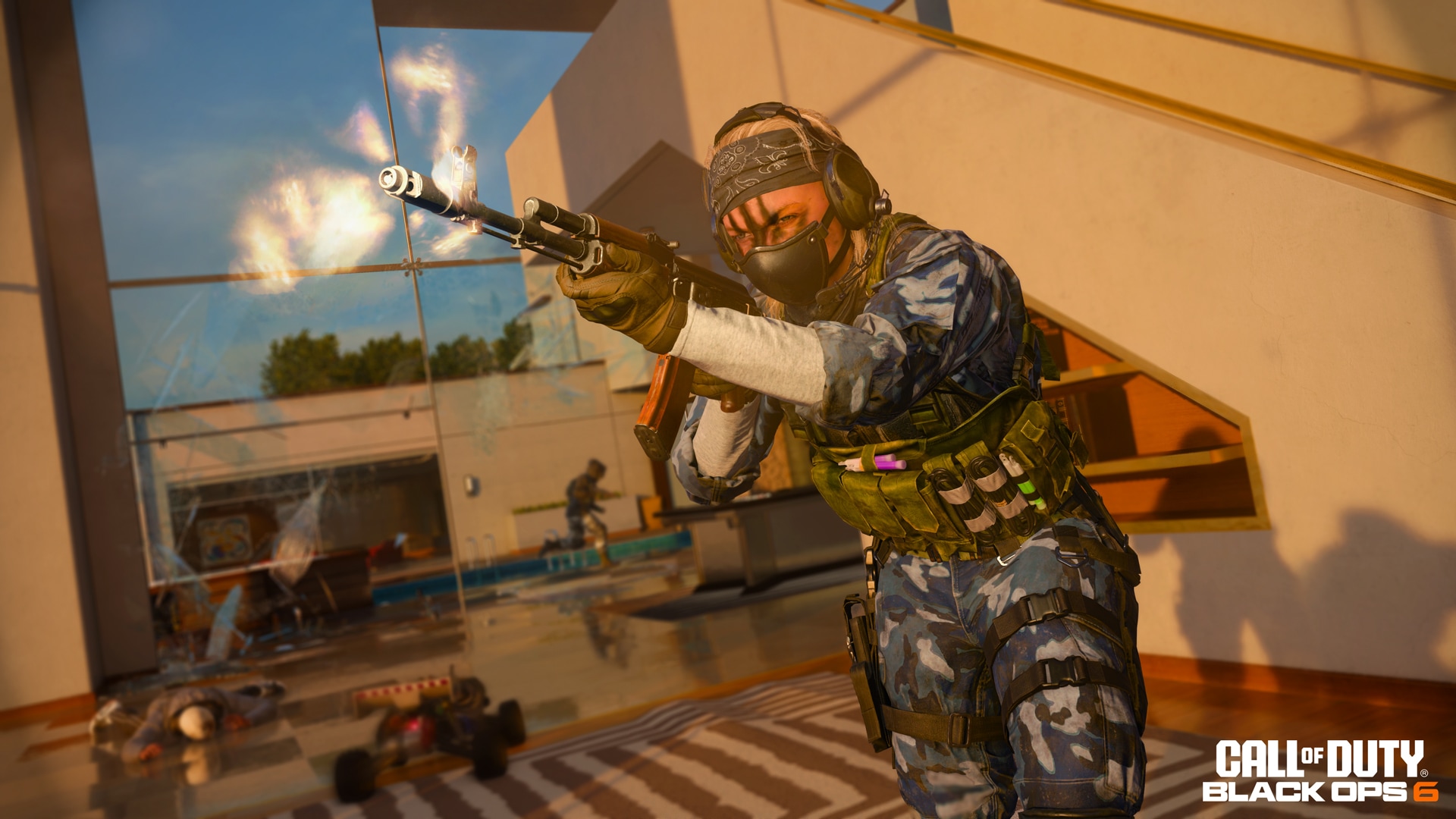RICOCHET Anti-Cheat™ Progress Report: Black Ops 6 launch
On October 25, Call of Duty®: Black Ops 6 launches and RICOCHET Anti-Cheat will be live on Day One, bringing with it new technology and upgrades to protect your experience.
When it first launched, RICOCHET Anti-Cheat committed to providing players with clear and transparent communication on our methods to protect the Call of Duty community from cheaters. Our technology and methods of detection have evolved so much, but the “how” and “when” we talk to the community simply needs to be more frequent and in line with our evolution.
The RICOCHET Anti-Cheat team has heard your feedback, and this progress report was written to provide a meaningful update on the issue of cheating as well as outline the foundation for the year to come beginning with the launch of Black Ops 6 and what lies beyond.
Over the last year, we have been investing in numerous core systems focused on decreasing the time gap between when cheating occurs and when our systems are able to act. By building on this foundation, we will be able to evolve more quickly and respond more rapidly (more on how fast we are trying to be later).
What Does #TeamRICOCHET Do?

We protect Call of Duty games. We often achieve that goal but know there is so much more work to do. So, what is cheating in Call of Duty? Simply put, it is anything that gives a player an unfair advantage in-game using nefarious software, like wall hacks or perfect aim – not to be confused with any abuse of in-game glitches. Cheating also includes account sharing to unlock gear, using software to get access to items you haven’t earned or purchased, and account boosting.
All of these actions are against our Security and Enforcement Policy.
And you might be wondering, how do people cheat in online games? Put simply, cheaters use software to manipulate the game, to reveal information that shouldn’t be known, or to take automated actions with superhuman speed or accuracy. We all know cars shouldn’t fly in this slice of the multiverse, but sometimes our in-game worlds disagree.
The people behind cheats are organized, illegal groups that pick apart every piece of data within our games to look for some way to make cheating possible. These bad guys are not just some script kiddies poking around with code they found online. They are a collective who profit from exploiting the hard work of game developers across the industry.
But cheat developers are flawed (clearly – they have to pretend to be good at video games). Every time they cheat, they leave breadcrumbs behind. There are several ways we find those breadcrumbs, for example:
- #TeamRICOCHET’s kernel-level driver for PC that runs as you play the game
- Server-side and client-side detections
- Machine learning models that look for anomalies and examine matches
- Anti-Cheat’s Replay Investigation Tool
- Third-party hardware detections and more
How Are We Protecting Black Ops 6?

The number one thing both we and you care about is not losing another match to a cheater. A lot has been put into Black Ops 6 to upgrade security, but here is the goal we’re targeting: we want to catch and remove cheaters within one hour of them being in their first match.
This metric is called “Time to Action,” and we will be monitoring our progress internally and building technology to drive this number down.
During the Black Ops 6 Beta, our team was live testing a lot of its new tech to try and achieve this goal. Weekend One was a stumble. In the past, we’ve used data from console players during Beta Weekend One to train and test our systems. Put simply, even though we love our friends who game on PC, it’s nice to have a weekend to stress test systems without the risk of cheaters. Since we had to protect the game without those stress tests, our new technology was so eager to catch cheaters, that it came in a little hot. When we recognized those errors, we immediately made adjustments to correct course in service of our new Time to Action milestone.
Cheaters were able to complete around 10 multiplayer matches during Weekend One before being removed. After tweaking our systems and deploying new detection methods for Weekend Two, we cut that time in half to 5 matches. That timing achieved our Time to Action goal. In fact, 25% of all Weekend Two bans happened during the first match a cheater ever played.
But removing someone after they cheat isn’t perfect, so we are ramping up detections to try to stop even more cheaters before they load into a game. During the beta we stopped over 12,000 confirmed cheating accounts before they ever saw the inside of a match.
Black Ops 6 on Day One is going to launch with a variety of updated anti-cheat tech. To name a few:
- An updated version of the kernel-level driver. Note: All features in the October 25 update will protect any title that uses the driver, including Call of Duty®: Warzone™.
- All mitigations, including Damage Shield, Disarm, Splat, Hallucination, and others will be live.
- New machine-learning behavioral systems, focused on speed of detection.
- New machine-learning detection models to analyze gameplay to combat aim bots.
- Upgrades when Ranked Play launches, which include continuous examinations to determine if leaderboard placements are accurate. More on Ranked Play updates in a future blog closer the mode’s launch.
- For Call of Duty: Warzone specifically, we’ve deployed new mitigations to interrupt cheaters. Stay tuned for a future report to learn about those new tricks.
We’re always looking for those breadcrumbs to find the bad actors and get them out of the game. That’s our commitment to the community.
What’s Ahead

While #TeamRICOCHET continues to develop and deploy client and server-side anti-cheat systems, we’re looking at what comes next. Fighting cheats today – on the client where illicit programs are activated – is a little like battling on a bad guy’s home turf: it is their machine and their code.
Kernel-Level Drivers on PC have enhanced anti-cheat’s reach, but cheaters are already offering cheats that go beyond the kernel, even going as far to utilize special PC hardware that is designed entirely for attacking games and enabling cheating.
What our team has been working on for the future is a suite of tools that use AI to find and fight cheaters.
Today, cheaters can run and hide but a trail exists. What if that trail disappears? That is what the team has been working on. Cheat developers can’t hide player behavior. How people play – the legit, the phony, the good, and the bad – gives us information and we use that to build ways to pick those bad folks out of a lineup.
We already have data from cheaters but to help build out profiles for those God-tier players we examine the data from the Call of Duty League – where every match is recorded, and every stat is preserved.
There’s more in progress around what we’re doing with AI beyond behavioral models and as work continues, we’ll share what we can.
Our Commitment

Cheating is a frustrating issue across the industry. But our goal is to get bad actors out of our game as fast as possible. Our NorthStar is within one hour.
We’ve had a lot of wins over the years – taking down several cheat developers completely, shutting out third-party hardware, flinging cheaters toward the ground at Mach-speed – but we know those wins don’t make you feel any better when you get beamed by a cheater from across the map.
We can’t tell you cheaters will disappear forever because of the tech we’re preparing for launch. But everyone at #TeamRICOCHET will use every tool we can to keep fighting to deliver a fair and fun experience for you! And if the right tool doesn’t exist, we’ll make it ourselves. Anti-cheat is a constant effort, and we are always working to stop and thwart the efforts of cheaters. It’s an effort we’re deeply committed to, through and through.
Keep an eye out for updates in future Progress Reports and across social media, particularly the @CODUpdates X (formerly known as Twitter) social account for real-time issues.
© 2024 Activision Publishing, Inc. ACTIVISION, CALL OF DUTY, CALL OF DUTY BLACK OPS, CALL OF DUTY WARZONE, and RICOCHET ANTI-CHEAT are trademarks of Activision Publishing, Inc. All other trademarks and trade names are the property of their respective owner.
For more information on Activision games, follow @Activision on X (formerly Twitter), Facebook, and Instagram.